Toddler Hits Dog But Parents Don’t Discipline, Who’s In The Wrong?
When it comes to parenting and how people parent, it’s no secret that everyone has a different way of doing things. Parents usually gain knowledge about their children to help with their judgment when it comes to discipline and parenting.
Sometimes there’s a fine line when it comes to giving people advice on parenting, but what about when it is affecting you personally? I think a lot of people don’t know what to do when it comes to someone else’s child impeding on them.
For example, this Reddit post was submitted by a user on the AITA thread to determine who is wrong in their situation. Someone else’s child constantly messes with their dog, but the parents seem to not discipline the child or let them know that it’s bad.
So the question is, what do you do and who is truly wrong in this situation? Well, people actually were on the same page on this one for the most part.
Ultimately, if the dog is the one in distress, then I’d remove them from the equation, whatever that means. I definitely feel like people can take it or leave it when it comes to certain things, but your pet’s safety is a big consideration.
Let’s dive in and take a look at this story and the best responses to this post!
Here’s the original post submitted by the Reddit user.
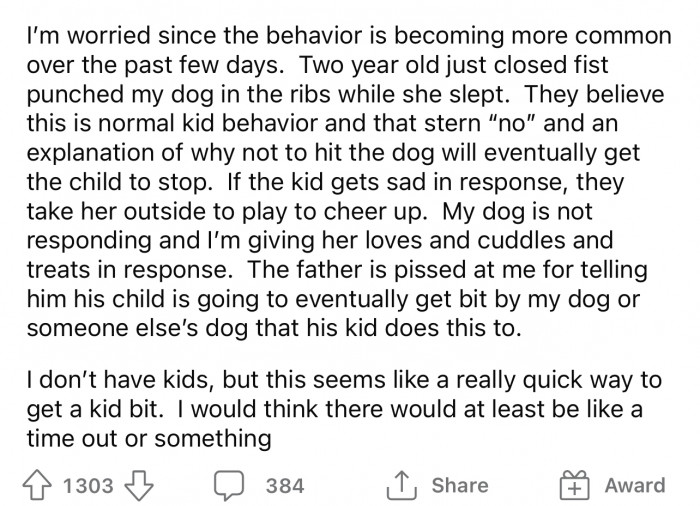
This comment is the only one that needed to be left because it provided so much information.
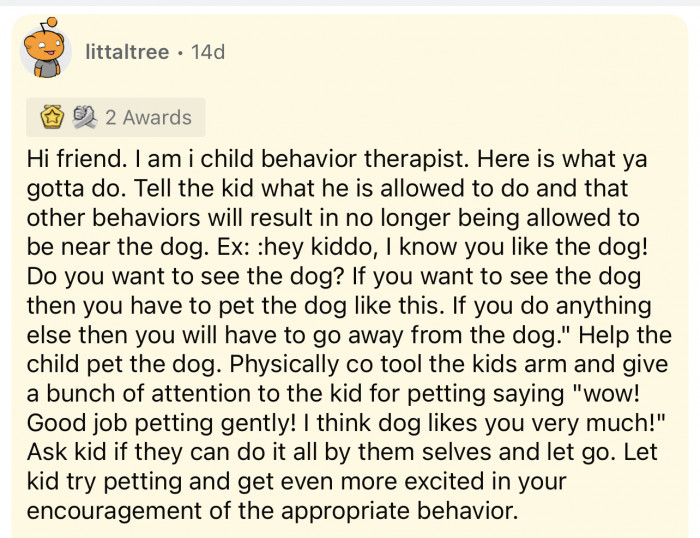
This is true. It's basically the dog's safety at stake.
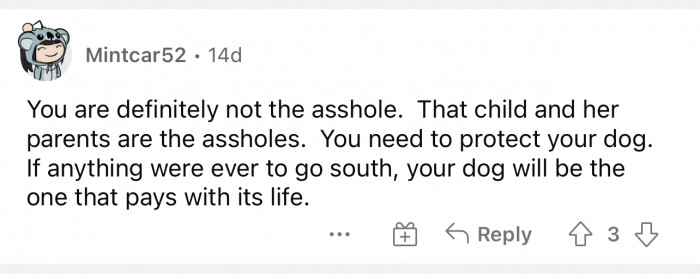
Understanding Child Behavior and Animal Interaction
The interaction between toddlers and pets can be complex, often reflecting developmental stages in understanding empathy and boundaries.
Research from the Journal of Developmental Psychology indicates that young children often lack the emotional regulation skills necessary to understand the impact of their actions on animals.
This developmental gap emphasizes the importance of adult guidance in teaching appropriate behaviors towards pets.
Finding some sort of separation will definitely help both parties in this situation.
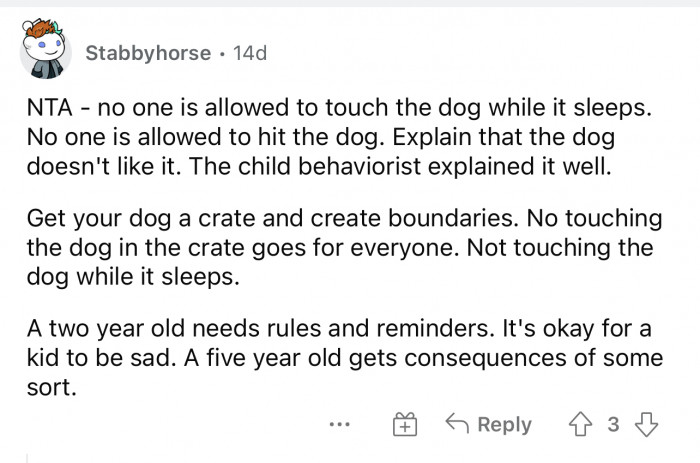
Parents need to tell their kids how to act with animals before they both get hurt.
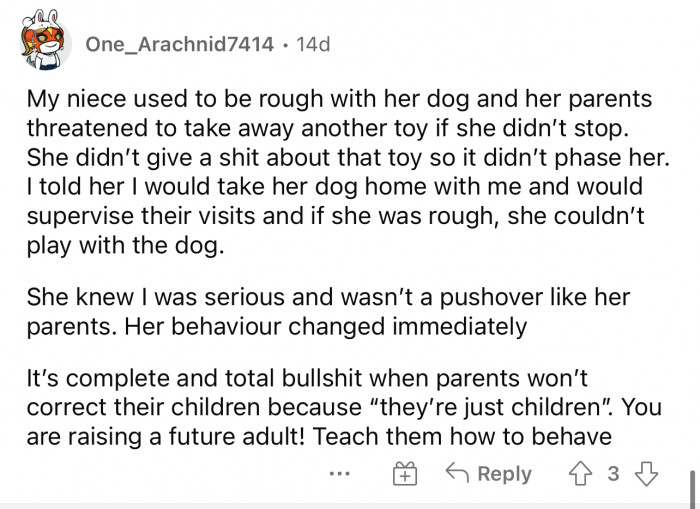
Again, separation will help them all. Keeping them away from each other can avoid all problems that could lead to a bite.
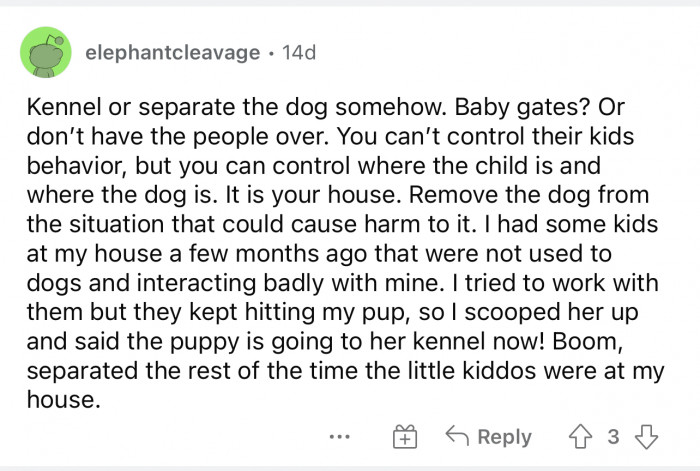
It's crucial to recognize that parental modeling plays a significant role in shaping children's behavior. Studies show that children often imitate the actions of adults, making it vital for parents to demonstrate empathy and appropriate pet care.
In this context, the lack of discipline may inadvertently teach the child that aggressive behavior towards animals is acceptable, which can have long-term implications.
Addressing this issue requires parents to actively engage in modeling positive interactions with pets.
Kids will be kids and dogs will be dogs, but there need to be some boundaries set.
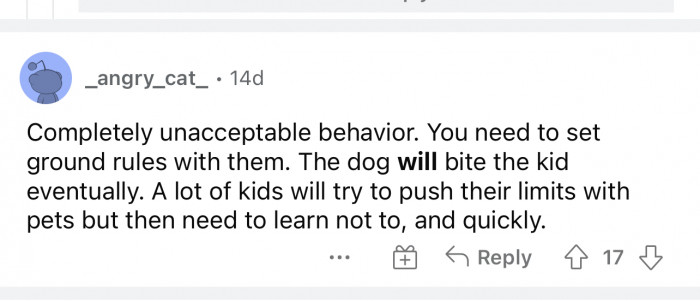
I definitely would set rules and boundaries, especially if they are living with OP.
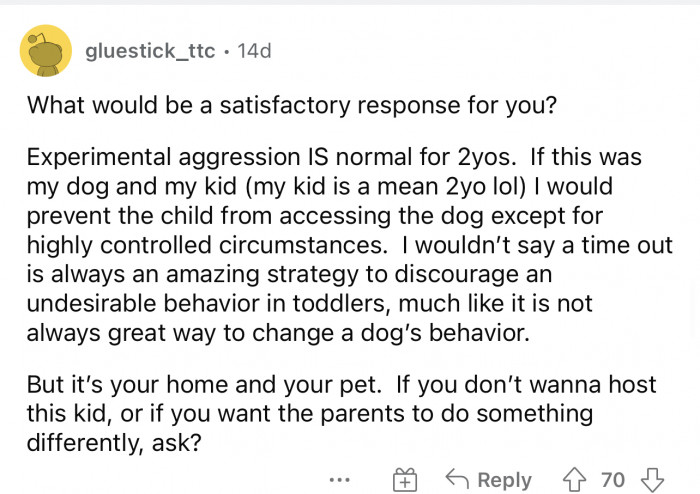
I'm sure that some sort of compromise can be made so that both of them are safe and happy.
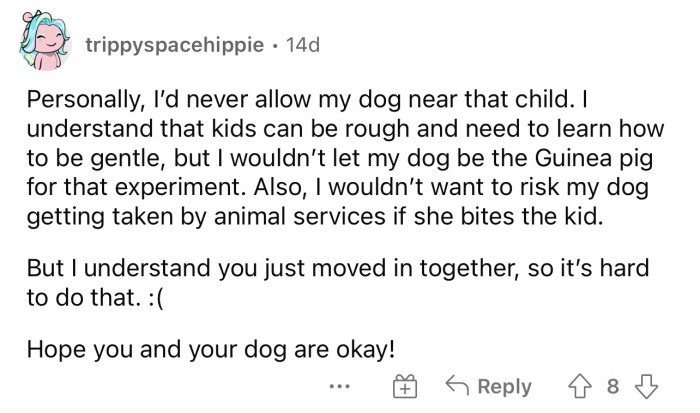
The Role of Discipline in Teaching Empathy
Disciplinary strategies should focus on teaching children about empathy and the consequences of their actions, rather than punishment alone.
Research from the University of Minnesota highlights the effectiveness of positive reinforcement techniques in promoting desired behaviors in children.
By using gentle reminders and teaching moments, parents can foster a greater understanding of empathy and respect for animals.
I think parenting is hard, and if they're first-time parents, then they may not know how to react to this situation with the dog.
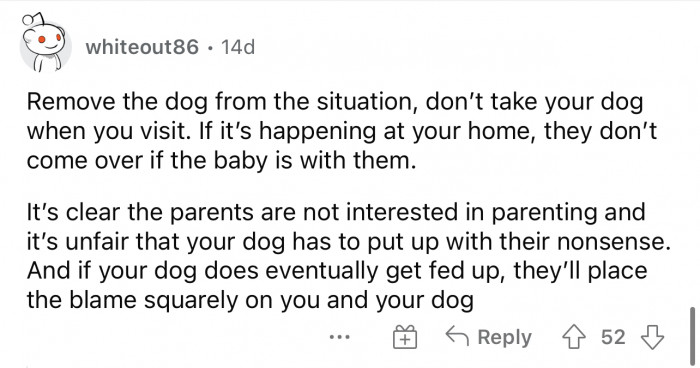
It is normal behavior for little kids, but the parents should set boundaries.
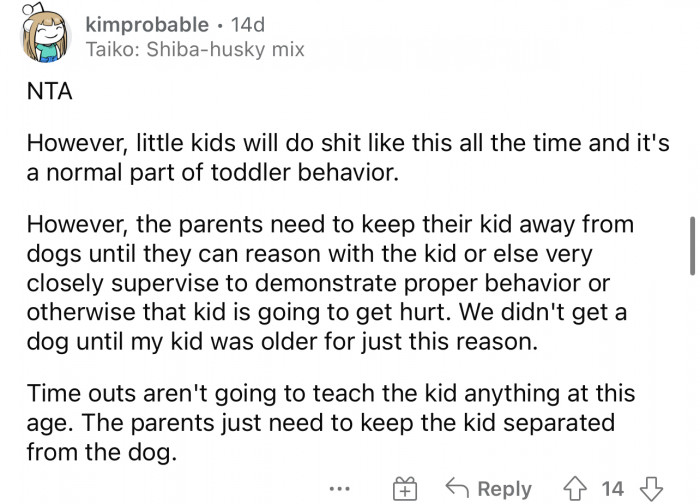
Both of them can easily get hurt if something isn't done about it.
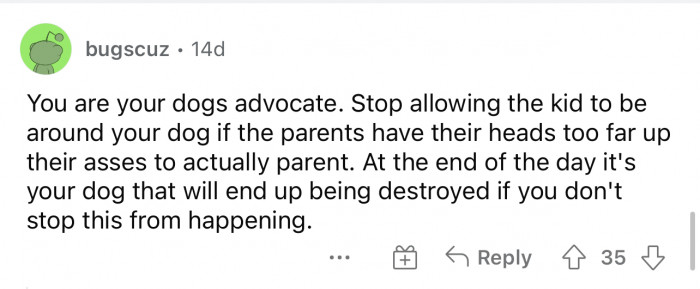
To address these behavioral issues effectively, parents should consider implementing structured conversations about empathy and animal care.
Engaging children in discussions about how animals feel can help them develop a more compassionate perspective.
Additionally, creating opportunities for supervised interactions with pets can reinforce positive behaviors while ensuring the safety and well-being of both the child and the animal.
This person said it right. It's both normal and unacceptable.
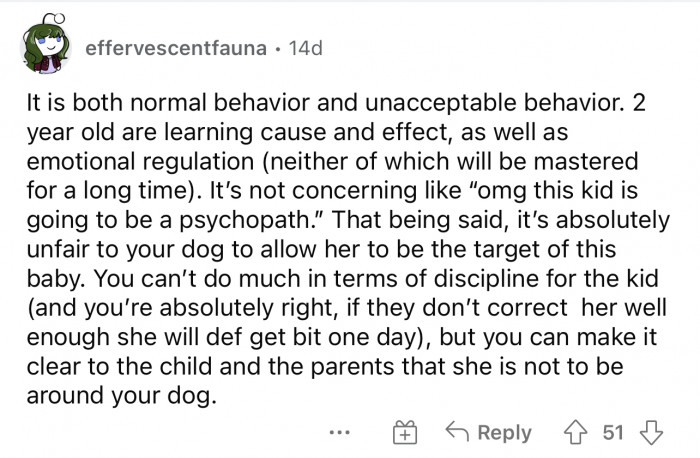
The parents and OP should set boundaries that they can agree on.
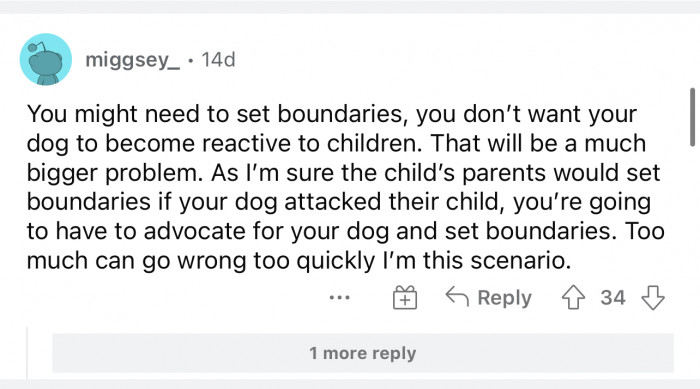
People had a lot of personal experiences to share with this post, and we love that.
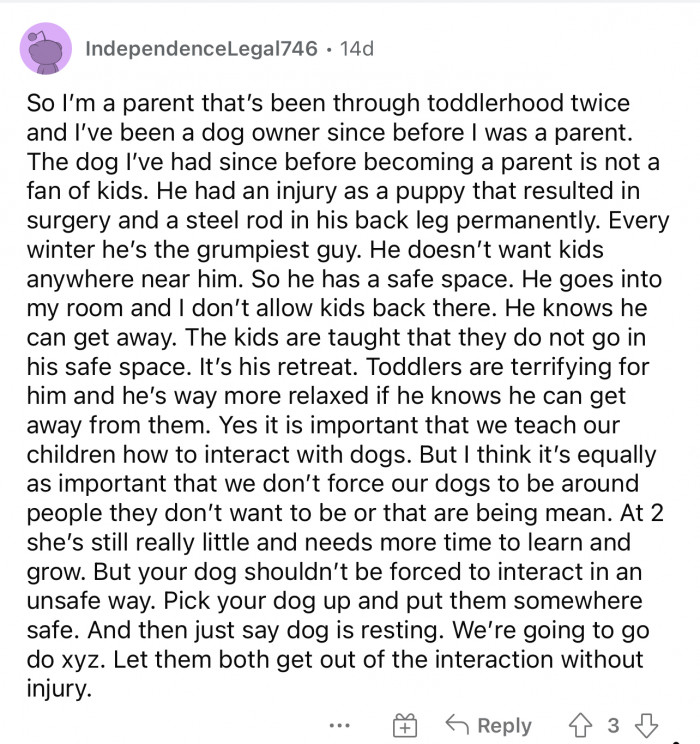
This sounds like the best advice because it will discipline without being harmful.
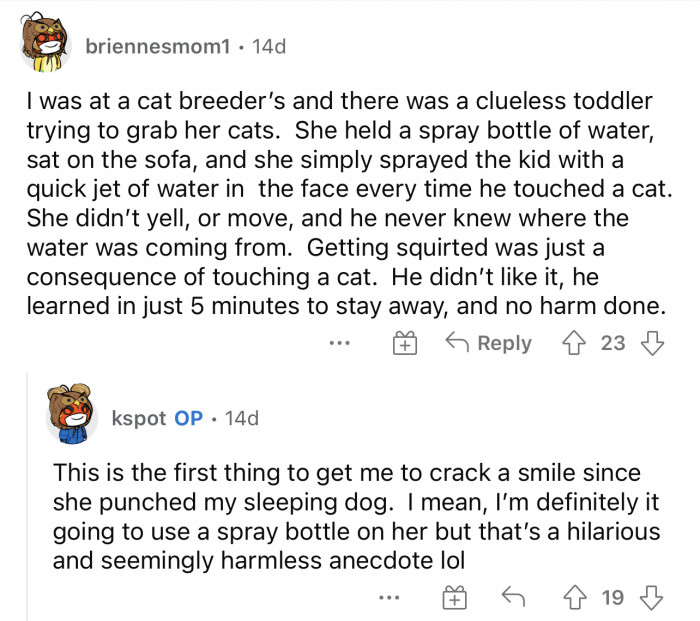
This is a learning moment for both of them, and it should be treated as such.
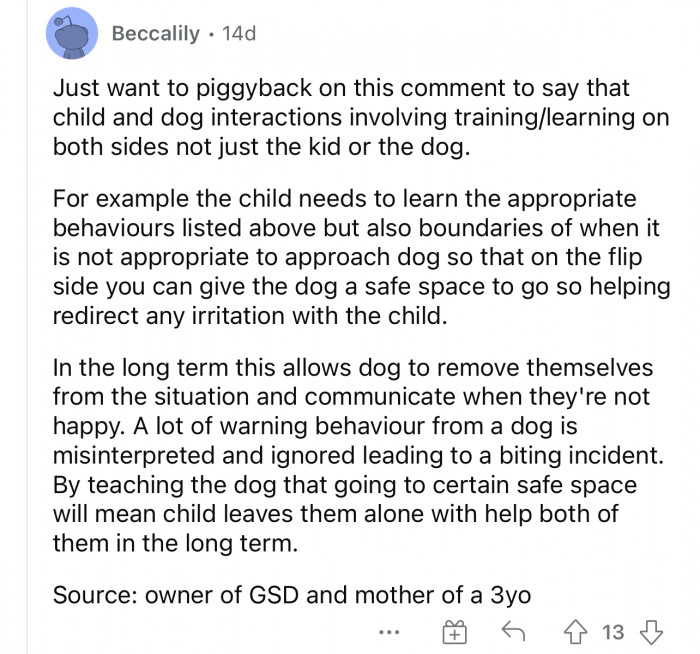
This is a great perspective to take, and it definitely makes you think.
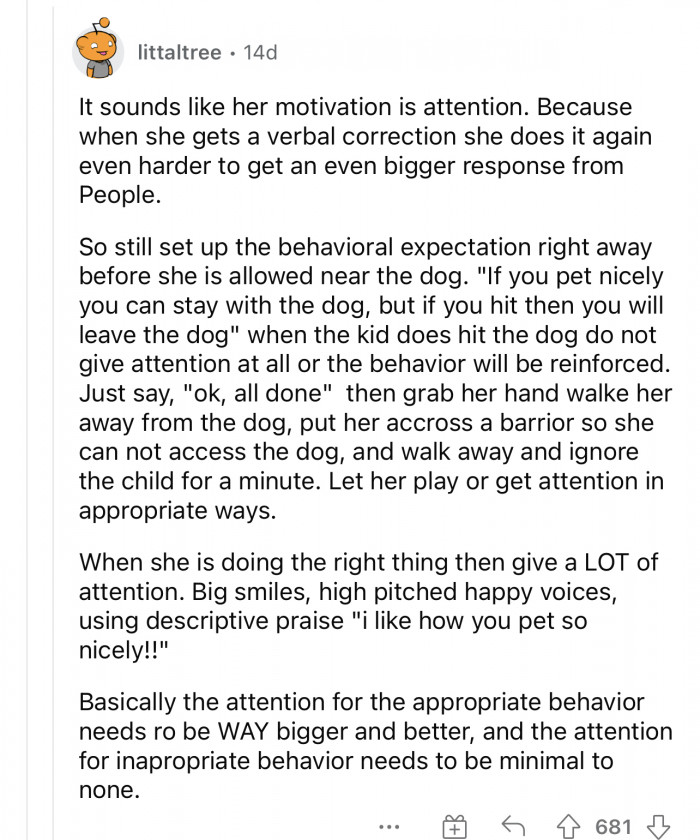
This situation is a difficult one, but the comments on it were the most helpful we've seen in a while. If you have kids or a pet, then you probably gained some great advice from some of these comments.
Either way, we hope that they come to a conclusion that's best for both of them.
Psychological Analysis
This situation highlights the critical role parents play in shaping their children's understanding of empathy and appropriate behavior towards pets. Without proper guidance, children may not learn the emotional implications of their actions, which can lead to negative interactions with animals.
It's essential for parents to model compassionate behavior and actively teach their children about the responsibilities involved in caring for pets.
Analysis generated by AI
Analysis & Alternative Approaches
Understanding the dynamics of child-animal interactions is crucial for fostering empathy in young children.
As noted by Dr. Shefali Tsabary, a renowned parenting expert, "Children learn empathy through observation and experience; guiding them in their interactions with animals is essential for their emotional development." Positive modeling and constructive discipline can significantly influence children's behavior towards animals.



